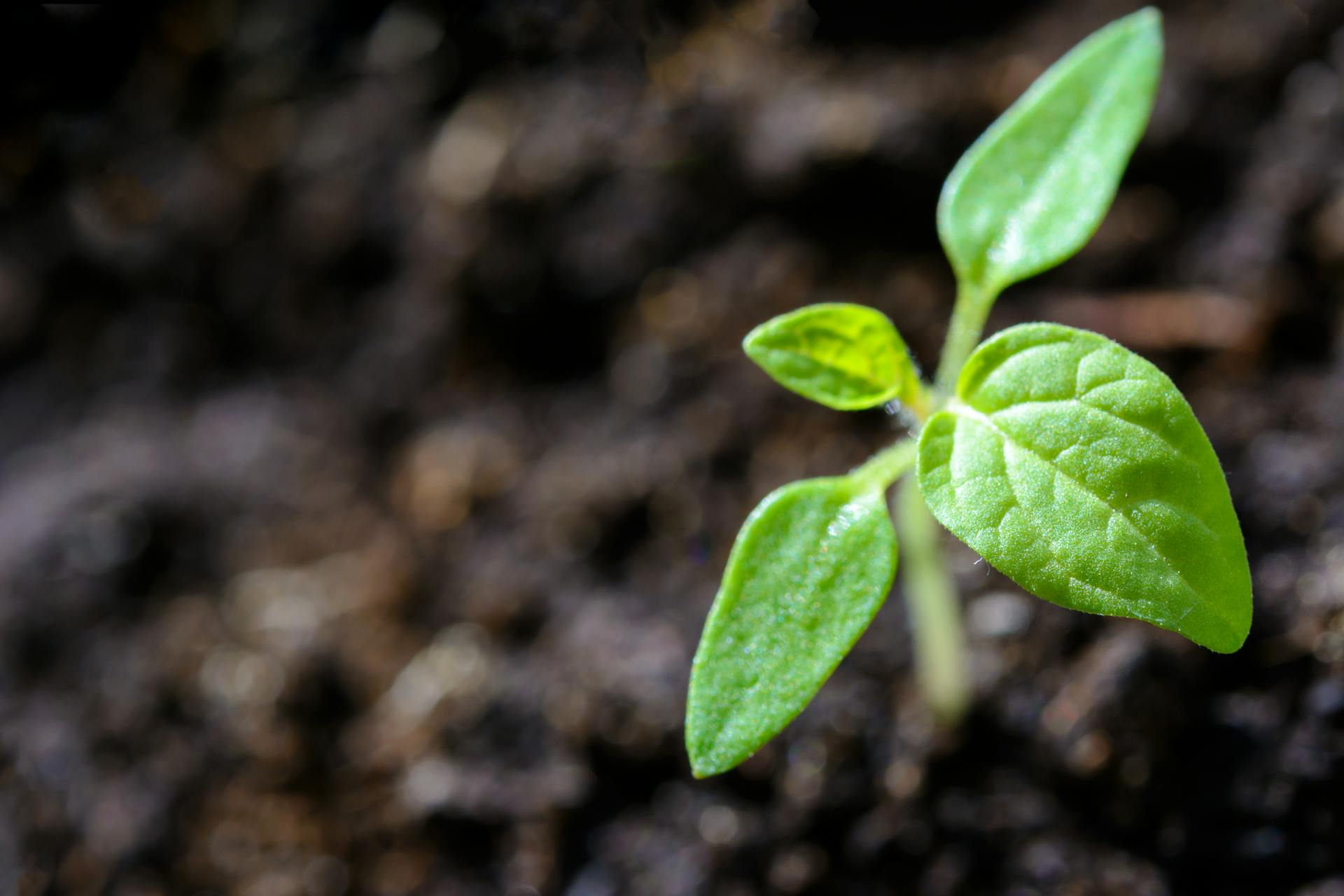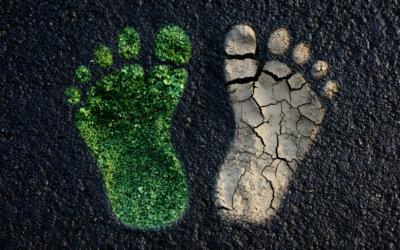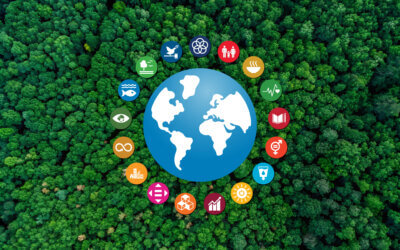With the world population nearing 8 billion people, there are ever-increasing environmental concerns about how to make sure everyone’s basic needs for food, water, and shelter are met in a sustainable way. [1] Feeding billions is not easy, and doing it in a sustainable way seems nearly impossible based on current limitations. For now, almost every bite has a hidden cost due to the energy it takes to grow, process, store, transport, sell, cook, and discard the food we all enjoy. This modern food cycle contributes to climate change and global warming in many ways, as food-related emissions produce greenhouse gases that include carbon dioxide (CO2), methane, and nitrous oxide. On average, food accounts for 21% of Americans’ annual carbon footprint. [2] The good news is, that number can be reduced as you work towards changing your diet. Keep reading to learn more about how food production impacts the environment and what you can do to help reduce the effects.
Climate Change Diet
According to The Intergovernmental Panel on Climate Change (IPCC), our current food system is responsible for up to a third of global greenhouse gas emissions. [3] While there may not be any diet that has zero impact on the environment, there are options that can help limit the carbon footprint of your food. Below we will explore several types of popular diets and how they impact climate change.
Plant-Based Diet & Climate Change
A plant-based diet is one that consists mostly of foods that are derived from plants such as vegetables, fruits, grains, seeds, and nuts. Plant-based diets are not always 100% meat-free, but most people who follow a plant-based diet limit or reduce their meat intake. In a special report commissioned by the United Nations (U.N.), the adoption of plant-based diets was mentioned as one significant way to help address climate change and improve people’s health. The report stated:
“Balanced diets, featuring plant-based foods, such as those based on coarse grains, legumes, fruits and vegetables, nuts and seeds, and animal-sourced food produced in resilient, sustainable and low-GHG emission systems, present major opportunities for adaptation and mitigation while generating significant co-benefits in terms of human health.” [4]
Veganism & Climate Change
Veganism incorporates aspects of eating plant-based foods but goes even further by eliminating all foods that use animal products. The elimination of meat from the diet could go a long way in helping reduce GHG emissions. In fact, by some estimates, a vegetarian diet has about half the carbon footprint compared to a meat-eater. [5] One report by the Changing Markets Foundation, in collaboration with independent researchers, concluded that reduction of meat and dairy from people’s diets, similar to a vegan diet, is a growing necessity to fight climate change. The report stated:
“Reduction in demand for animal products would be a relatively easy and cheap way to mitigate a significant share of global GHG emissions, especially short-lived but potent methane emissions. It would also liberate vast areas of land, which will need to be maximized as a carbon sink and for nature conservation.” [6]
Meat & Climate Change
While much of the research suggests eliminating meat from your diet is better for the environment and your health, the reality is the majority of the world is continuing to consume meat. In the U.S., only about 5% of adults consider themselves vegetarian. [7] Even worse, meat consumption is expected to continue to rise, with some predicting a 160% increase by 2050. [8] Some reasons that meat production is such as strain on the environment include:
- Red meat production produces 10 to 40 times more GHG emissions than vegetables and grains [9]
- Producing a single hamburger uses fossil fuels equivalent to driving a car about 20 miles [10]
- Around 30% of ice-free land around the world is currently being used to raise livestock [11]
- The top meat and dairy companies are on track to produce more pollution than Exxon, Shell, and B.P. [12]
- Agriculture, including livestock production, is the world’s top contributor to water pollution [13]
6 Ways Your Diet Can Help Fight Climate Change
If you are looking for ways to help fight climate change with your diet, then you are in luck. There are some practical things you can start today to help reduce your impact and make significant steps towards a more sustainable future. Below are six ideas to help get you started.
1. Eat Less Meat
Countless studies point towards animal foods as having a negative impact on the environment. From deforestation for grazing to animal waste polluting the water and soil, anyone who wants to help fight climate change should start by reducing their meat consumption. Be realistic as you make changes to your diet, and consider starting with meatless Mondays, or simply increasing your plant-based food options at the dinner table.
2. Start a Garden
One of the biggest reasons any food you buy at the grocery store carries with it a measurable carbon footprint is due to the fact that it had to be transported there using fossil fuel burning trucks. Cut out the middleman and grow your very own fruits and veggies at home. Don’t have a green thumb? Start small with some herbs in your kitchen.
3. Shop, Eat, & Buy Local
If you don’t have the time or space to grow your own food, then your next best bet is to buy local. When you shop local, the food you eat will have a smaller footprint, and you can have a better idea of exactly where your food is coming from.
4. Support Sustainable Organic Farms
When shopping locally, look for organic farms that are sustainably growing their produce. Certified organic farms don’t use pesticides that could pollute the environment, soil, and waterways, and typically are more conscious of their environmental impact compared to large industrial farming operations.
5. Reduce Your Food Waste
Americans throw away about 150,000 tons of food every day. [14] When food waste sits in a landfill, it contributes to the production of methane gas, which traps even more heat than CO2 in the atmosphere. [15] Reduce your food waste by shopping smarter, and if possible, compost your food waste for a garden.
6. Limit Packaged Foods
The food itself is not the only problem. Food packaging can be a huge detriment to the environment. Shopping for foods with fewer or no packaging can help save countless pieces of paper and plastic from the landfill each year.
Offsetting the Way You Eat With Carbon Offsets
The truth is, no one’s diets are 100% perfect all the time. We’re all human, and from time-to-time, our diet may include things that are not great for our health or the environment. The good news is there are some simple ways to help offset your diet with carbon offsets, like those offered by Terrapass. Our third-party verified offsets help reduce CO2 and support green energy initiatives around the globe. If you want to start living a truly carbon-neutral life, diet and all, you can. Start by calculating your personal carbon footprint using our free carbon calculator.
Brought to you by terrapass.com
Sources:
- “Current World Population.” Worldometer, www.worldometers.info/world-population/.
- “The American Carbon Footprint.” Brighter Planet. https://kohalacenter.org/HISGN/pdf/carbofoodprint.pdf.
- “UN Report: Plant-Based Diets Provide ‘Major Opportunities’ to Address Climate Crisis.” Earth Day, 17 Dec. 2019, www.earthday.org/un-report-plant-based-diets-provide-major-opportunities-to-address-climate-crisis/.
- “Summary for Policymakers.” Special Report on Climate Change and Land, www.ipcc.ch/srccl/chapter/summary-for-policymakers/.
- “Food’s Carbon Footprint.” Green Eatz, 12 Jan. 2020, www.greeneatz.com/foods-carbon-footprint.html.
- “Growing the Good.” Changing Markets Foundation. Oct. 2018, https://changingmarkets.org/report/growing-the-good-the-case-for-low-carbon-transition-in-the-food-sector/
- Hrynowski, Zach. “What Percentage of Americans Are Vegetarian?” Gallup.com, Gallup, 11 Oct. 2019, news.gallup.com/poll/267074/percentage-americans-vegetarian.aspx.
- The World Counts, www.theworldcounts.com/challenges/consumption/foods-and-beverages/world-consumption-of-meat.
- “How Does Meat in the Diet Take an Environmental Toll?” Scientific American, Scientific American, 28 Dec. 2011, www.scientificamerican.com/article/meat-and-environment/.
- “How Does Eating Meat Harm the Environment?” PETA, 7 July 2010, www.peta.org/about-peta/faq/how-does-eating-meat-harm-the-environment/.
- Carroll, Aaron E. “The Real Problem With Beef.” The New York Times, The New York Times, 1 Oct. 2019, www.nytimes.com/2019/10/01/upshot/beef-health-climate-impact.html.
- Supporting social movement struggles against free trade and investment agreements, et al. “Emissions Impossible: How Big Meat and Dairy Are Heating up the Planet.” GRAIN, www.grain.org/article/entries/5976-emissions-impossible-how-big-meat-and-dairy-are-heating-up-the-planet.
- “Meat and the environment – the facts” Vancouver Humane Society. https://www.vancouverhumanesociety.bc.ca/meat-and-the-environment/.
- Milman, Oliver. “Americans Waste 150,000 Tons of Food Each Day – Equal to a Pound per Person.” The Guardian, Guardian News and Media, 18 Apr. 2018, www.theguardian.com/environment/2018/apr/18/americans-waste-food-fruit-vegetables-study.
- “Basic Information about Landfill Gas.” EPA, Environmental Protection Agency, 18 Dec. 2019, www.epa.gov/lmop/basic-information-about-landfill-gas.







